Best AI tools for< Lora Extraction >
Infographic
11 - AI tool Sites

Flux LoRA Model Library
Flux LoRA Model Library is an AI tool that provides a platform for finding and using Flux LoRA models suitable for various projects. Users can browse a catalog of popular Flux LoRA models and learn about FLUX models and LoRA (Low-Rank Adaptation) technology. The platform offers resources for fine-tuning models and ensuring responsible use of generated images.
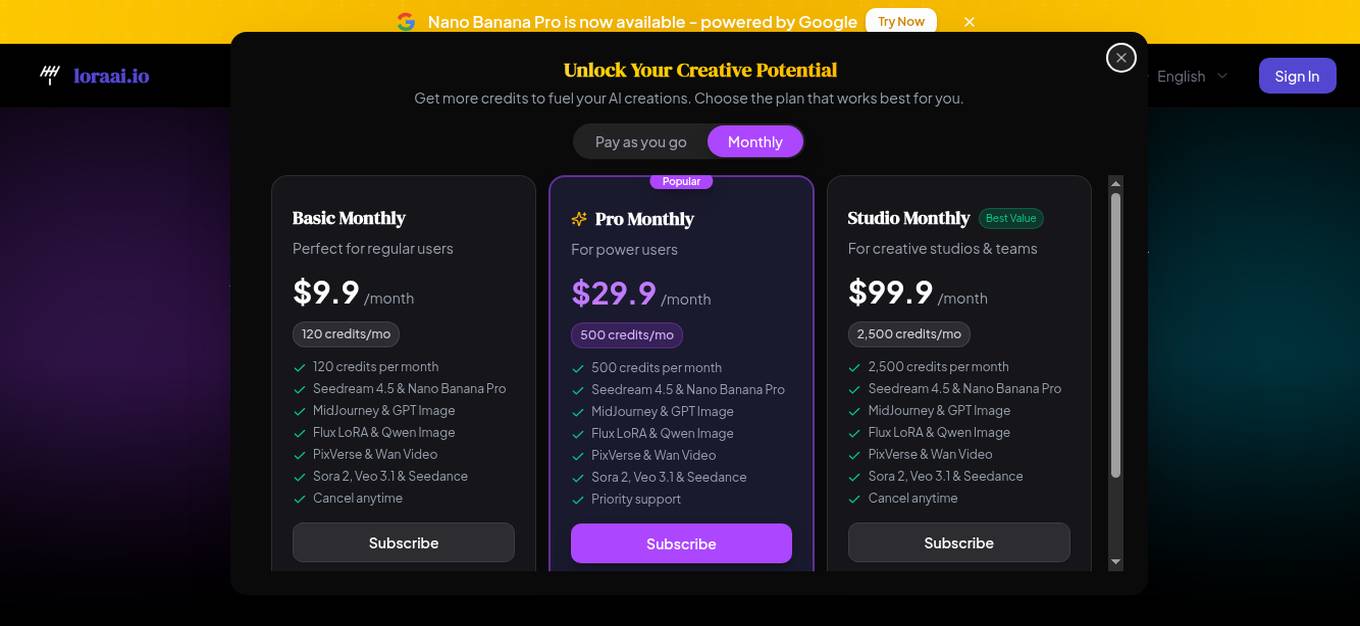
LoraAI
LoraAI is a cutting-edge AI platform that empowers creators to generate images, create videos, train custom AI styles, and edit with powerful tools. With a wide range of AI models and features, LoraAI provides everything needed for AI creation, catering to professionals and hobbyists alike. The platform offers fast and efficient processing, high-quality outputs, and user-friendly interfaces, making it a top choice for those looking to enhance their creative projects with AI technology.
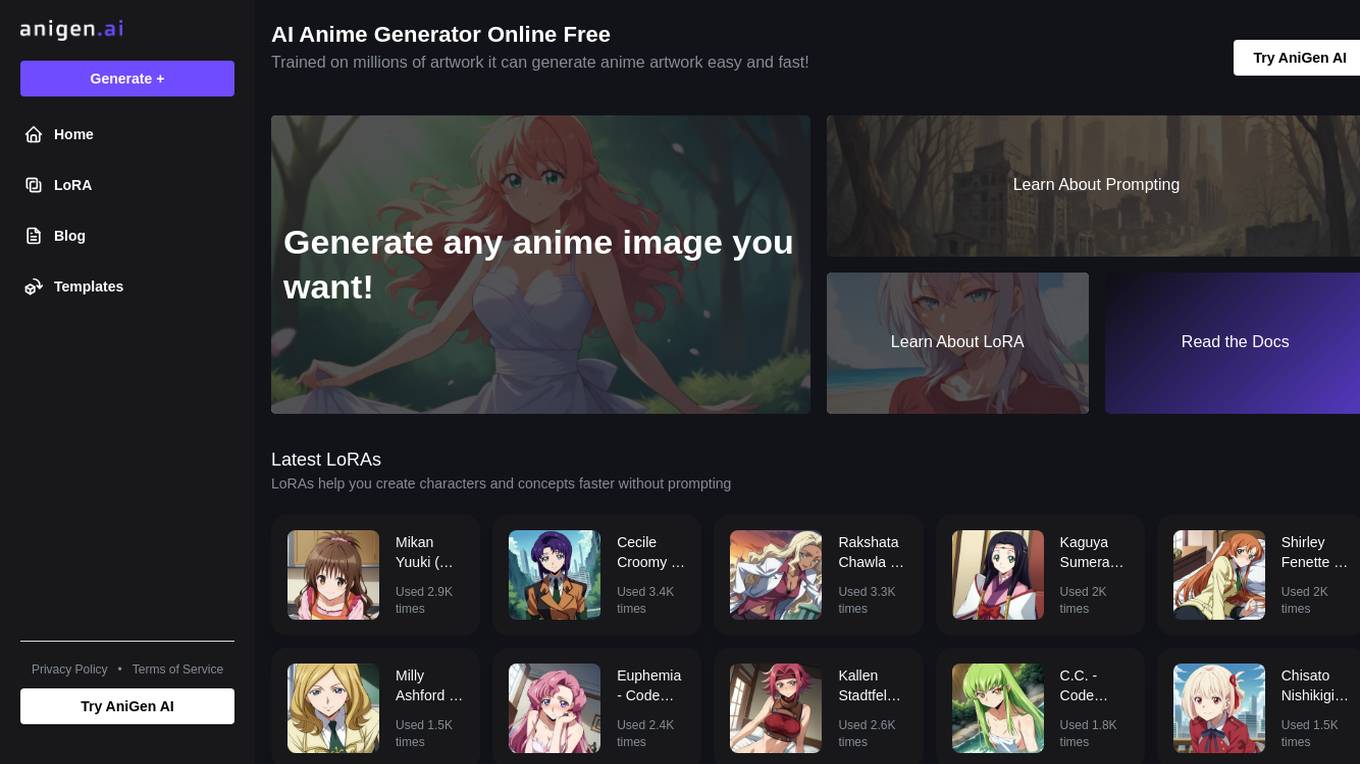
AniGen AI
AniGen AI is an online AI application that generates anime characters for free. It uses advanced artificial intelligence algorithms to create unique and customizable anime characters. Users can easily design their own anime characters by selecting various features such as hair style, eye color, and clothing. AniGen AI provides a fun and creative way for anime enthusiasts to bring their characters to life.
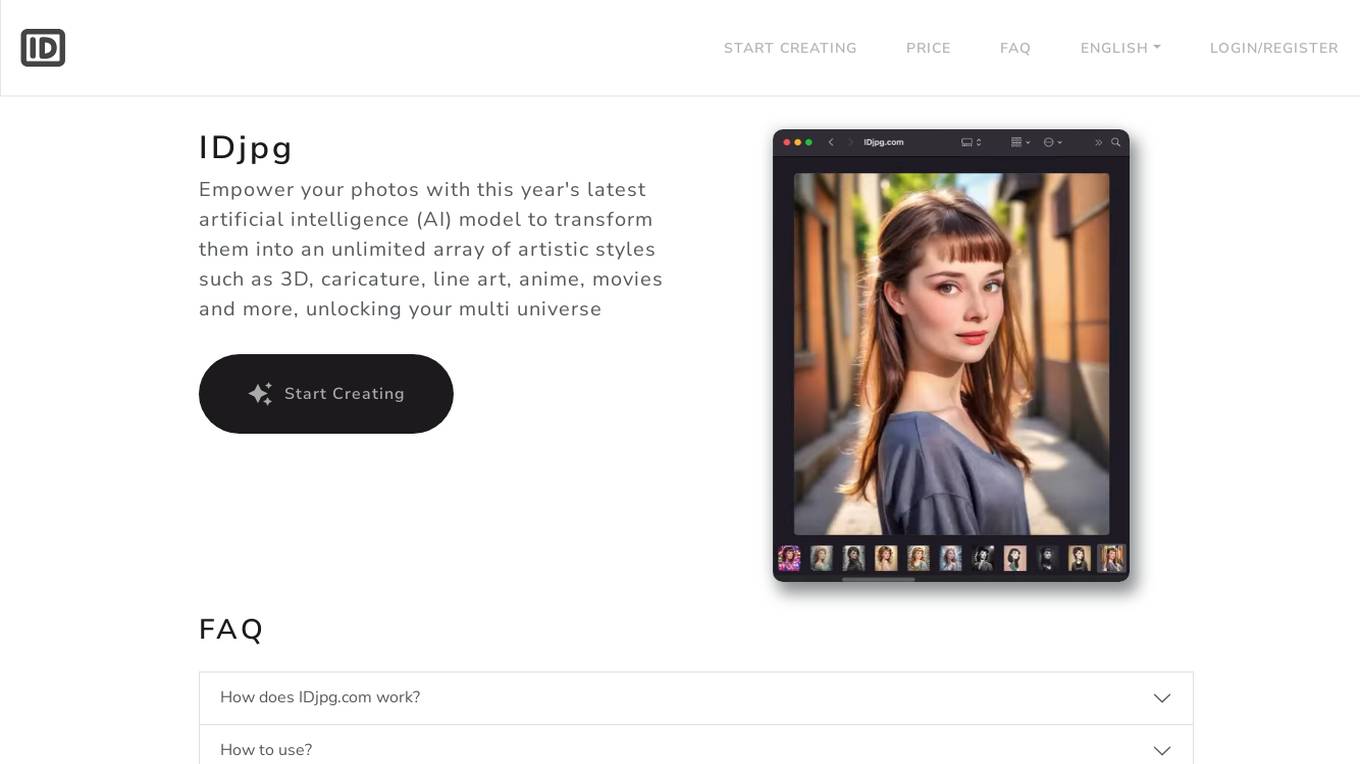
IDjpg
IDjpg is an AI-powered photo editing tool that allows users to transform their photos into a variety of artistic styles, including 3D, caricature, line art, anime, and movies. The tool is easy to use and can be used to create unique and eye-catching images.
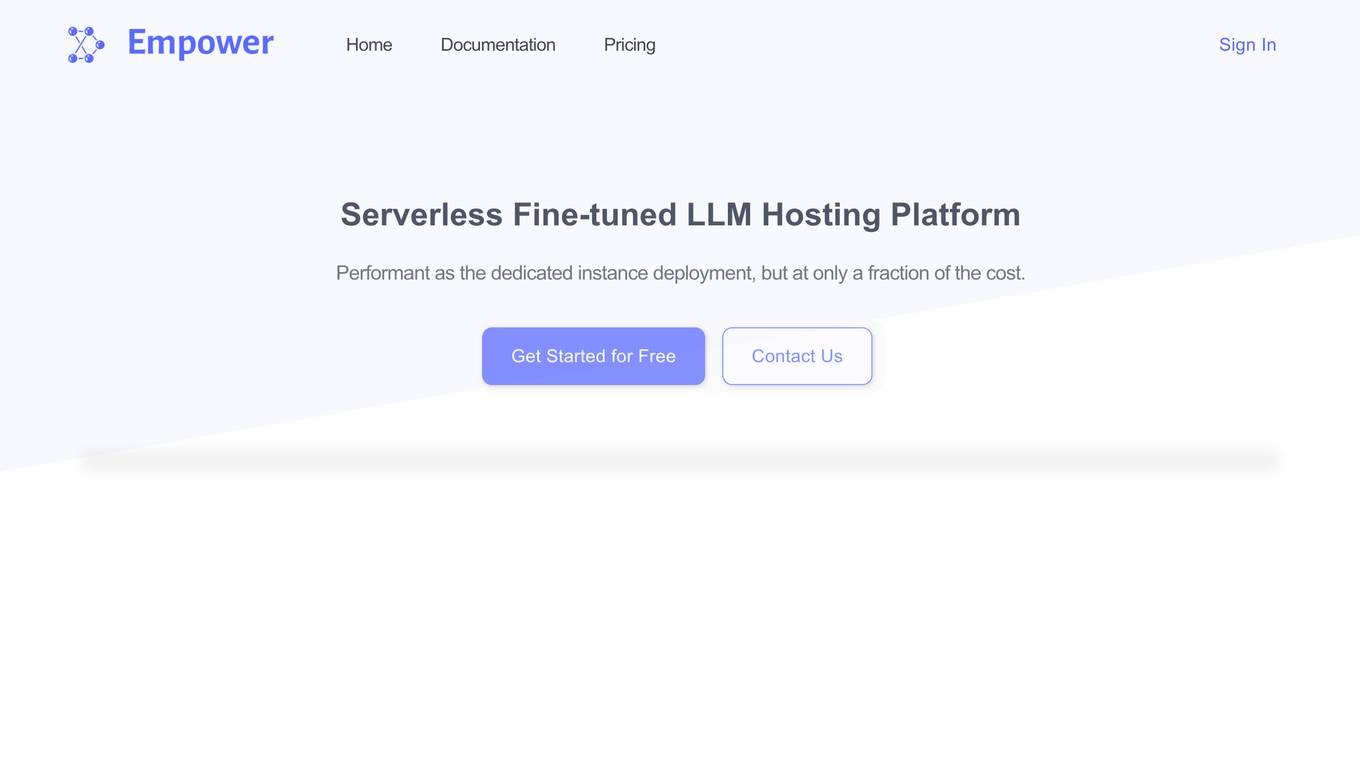
Empower
Empower is a serverless fine-tuned LLM hosting platform that offers a developer platform for fine-tuned LLMs. It provides prebuilt task-specific base models with GPT4 level response quality, enabling users to save up to 80% on LLM bills with just 5 lines of code change. Empower allows users to own their models, offers cost-effective serving with no compromise on performance, and charges on a per-token basis. The platform is designed to be user-friendly, efficient, and cost-effective for deploying and serving fine-tuned LLMs.
AvatarStudio
AvatarStudio is an AI tool that allows users to generate custom AI avatars by uploading selfies with different angles. The tool then builds a studio based on the uploaded photos and assists users in crafting the perfect prompt to generate unique avatars. AvatarStudio offers a cost-effective solution for creating custom AI avatars, providing 50 shots for $10 with a custom trained model and 4K generation capabilities. Users can unleash their creativity and design avatars that perfectly capture their unique style.
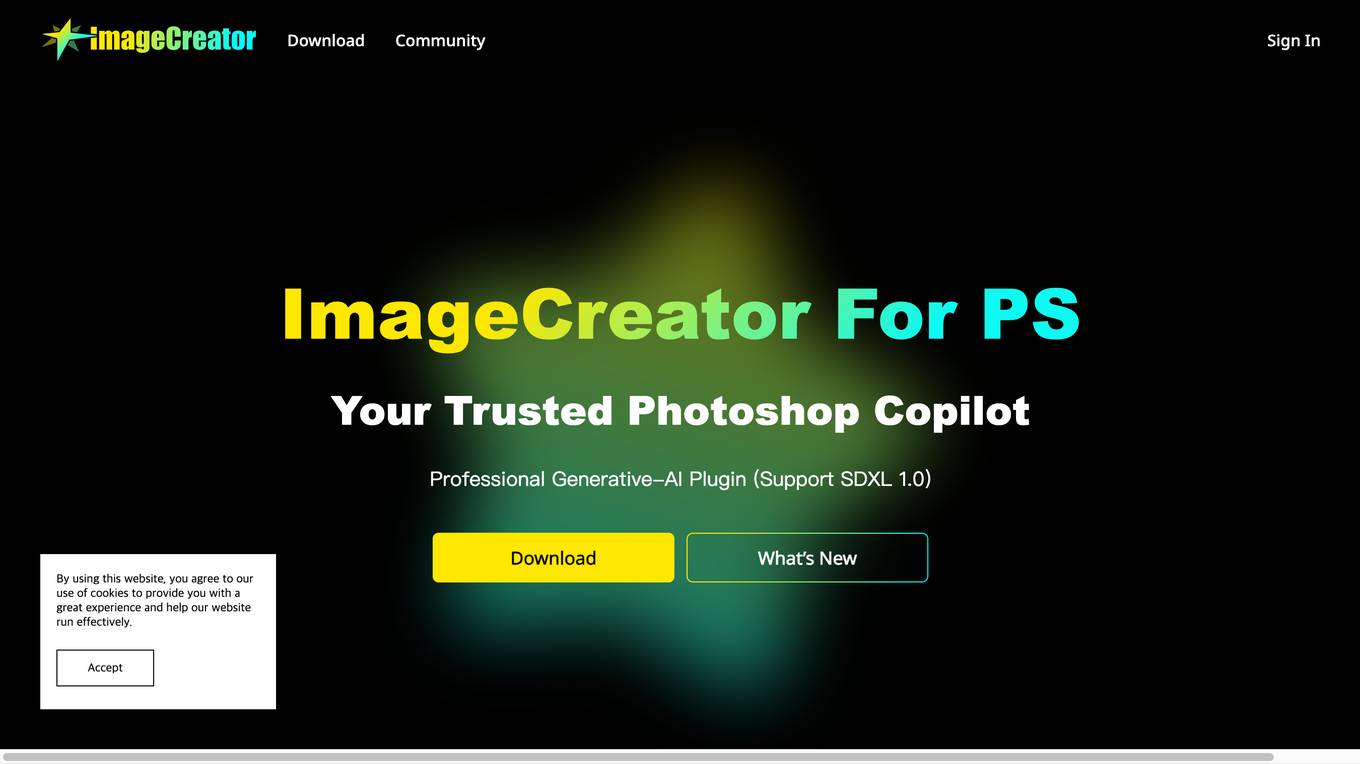
ImageCreator
ImageCreator is a professional generative-AI plugin for Photoshop that allows users to create beautiful art in minutes. With its user-friendly interface and powerful features, ImageCreator is the perfect tool for artists of all levels. ImageCreator offers a variety of features, including: * **TXT2IMG:** Generate images from text prompts. * **IMG2IMG:** Edit and enhance existing images. * **FILL:** Fill in missing parts of images. * **Prompt Editing:** Provides positive and negative prompt input, and a personal notebook editor. * **ControlNet:** Support multiple control models and process settings to work together. ImageCreator is the perfect tool for creating unique and stunning art projects. With its powerful features and user-friendly interface, ImageCreator is the perfect tool for artists of all levels.
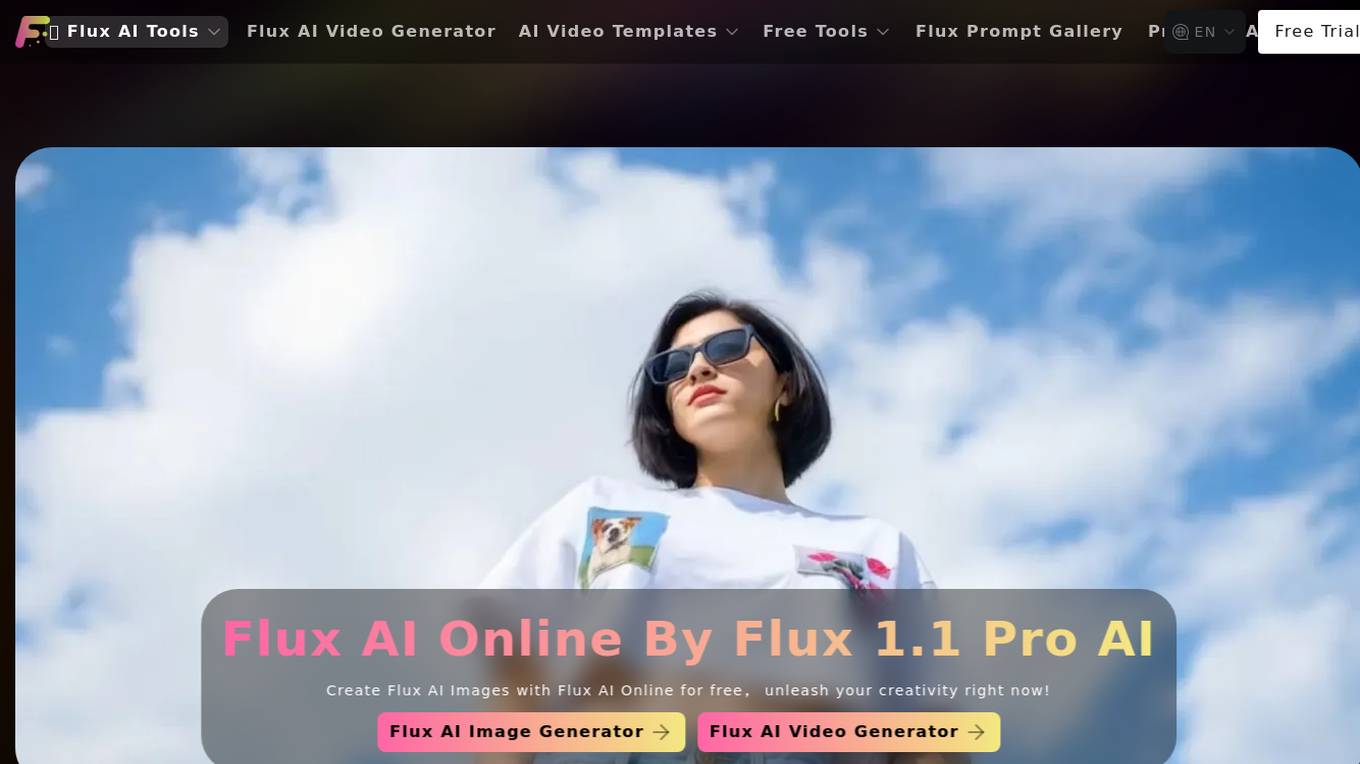
Flux AI Online
Flux AI Online is an advanced AI tool that offers a wide range of features for image and video generation. Users can create stunning images and videos using Flux Pro AI models such as Flux Lora Image Generator, Flux AI Anime Image Generator, and more. The tool also includes AI tools like Flux Canny/Depth AI for image processing and Flux Fill AI for image completion. With Flux AI, users can effortlessly enhance their creative workflow and bring ideas to life with high-quality visuals.
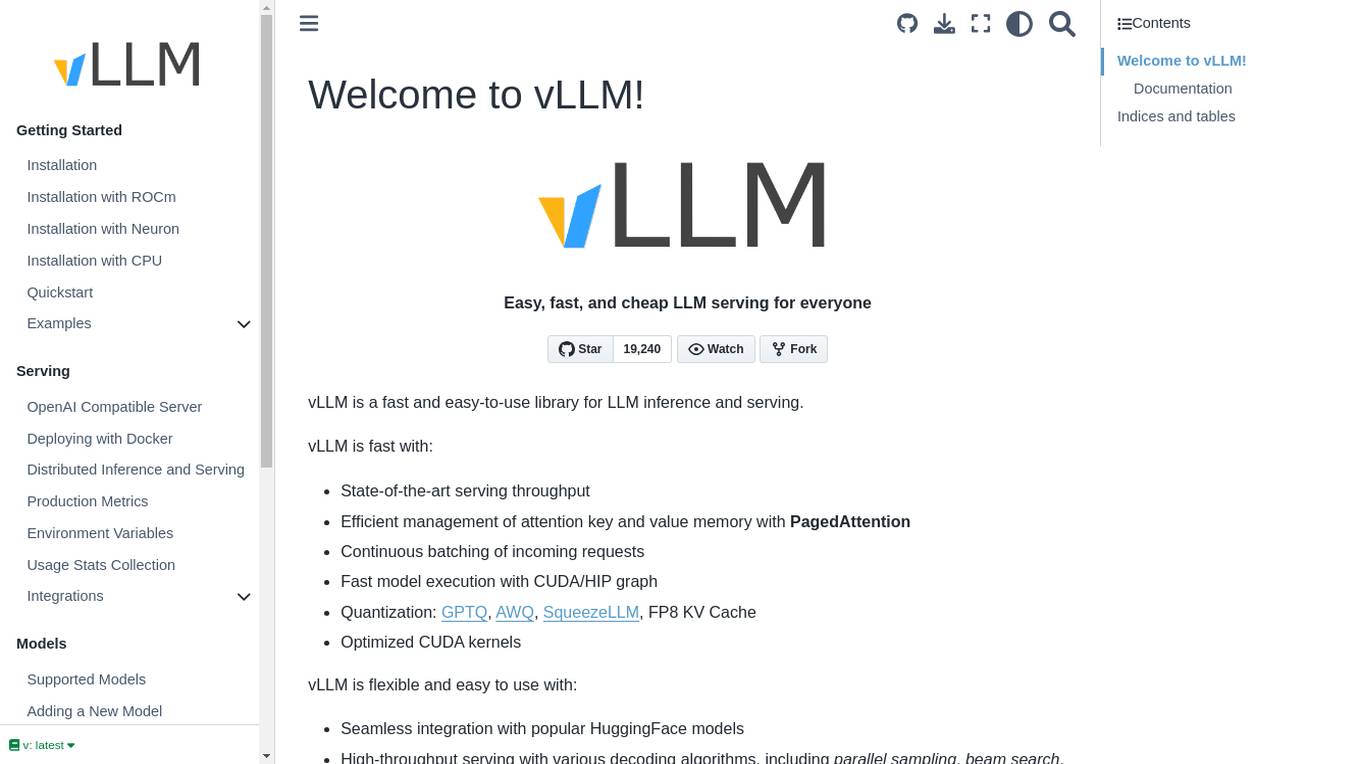
vLLM
vLLM is a fast and easy-to-use library for LLM inference and serving. It offers state-of-the-art serving throughput, efficient management of attention key and value memory, continuous batching of incoming requests, fast model execution with CUDA/HIP graph, and various decoding algorithms. The tool is flexible with seamless integration with popular HuggingFace models, high-throughput serving, tensor parallelism support, and streaming outputs. It supports NVIDIA GPUs and AMD GPUs, Prefix caching, and Multi-lora. vLLM is designed to provide fast and efficient LLM serving for everyone.
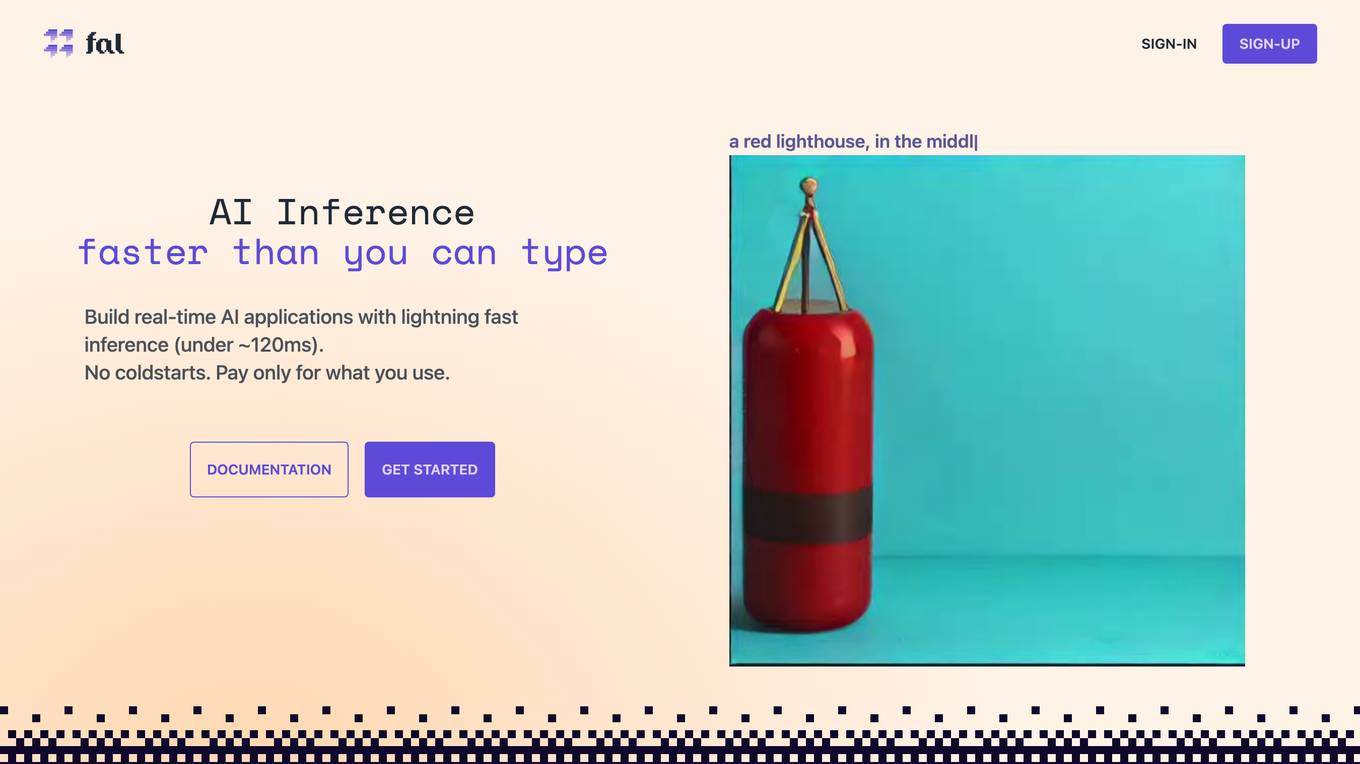
fal.ai
fal.ai is a generative media platform designed for developers to build the next generation of creativity. It offers lightning-fast inference with no compromise on quality, providing access to high-quality generative media models optimized by the fal Inference Engine™. The platform allows developers to fine-tune their own models, leverage real-time infrastructure for new user experiences, and scale to thousands of GPUs as needed. With a focus on developer experience, fal.ai aims to be the fastest AI tool for running diffusion models.
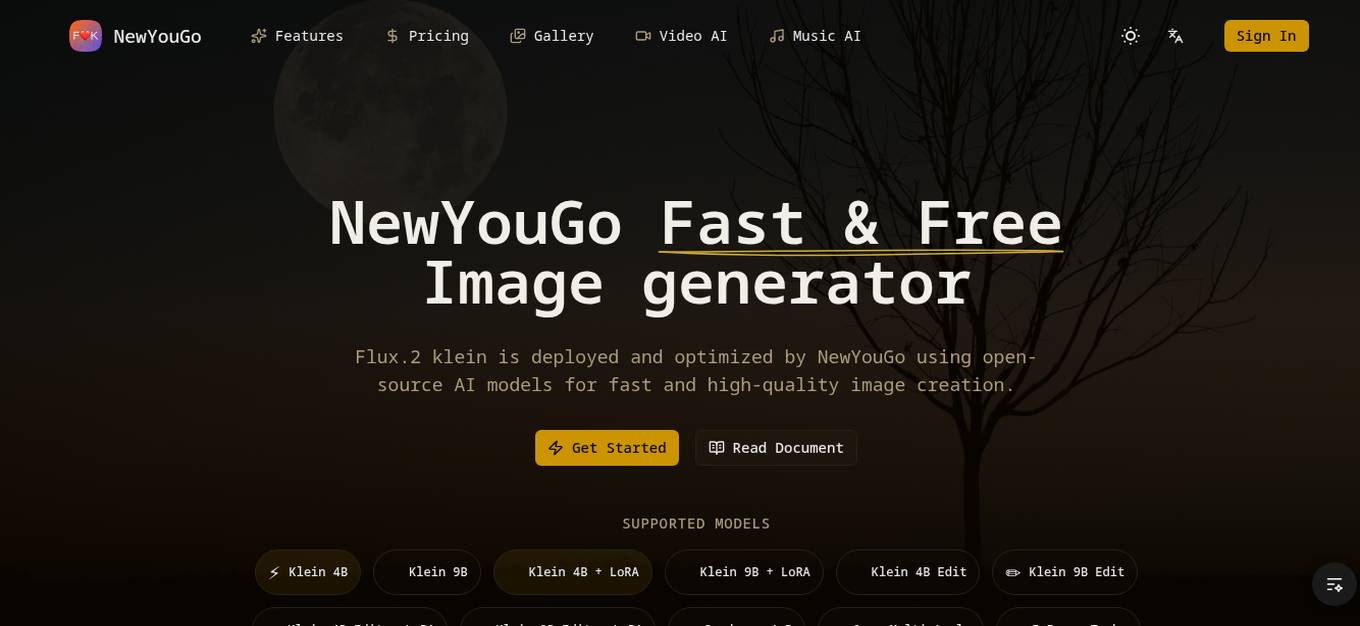
NewYouGo
NewYouGo is a lightning-fast AI image generation tool powered by Flux 2 Klein. It offers powerful image generation capabilities for professional creators and enthusiasts. The application is built on the cutting-edge Flux 2 framework, delivering unprecedented photorealism and artistic depth. Users can choose between different AI models for image creation and editing, with options for fast drafts or ultra-detailed outputs. NewYouGo also provides AI image inpainting and editing features, instant cloud rendering, and AI image restoration capabilities.
1 - Open Source Tools
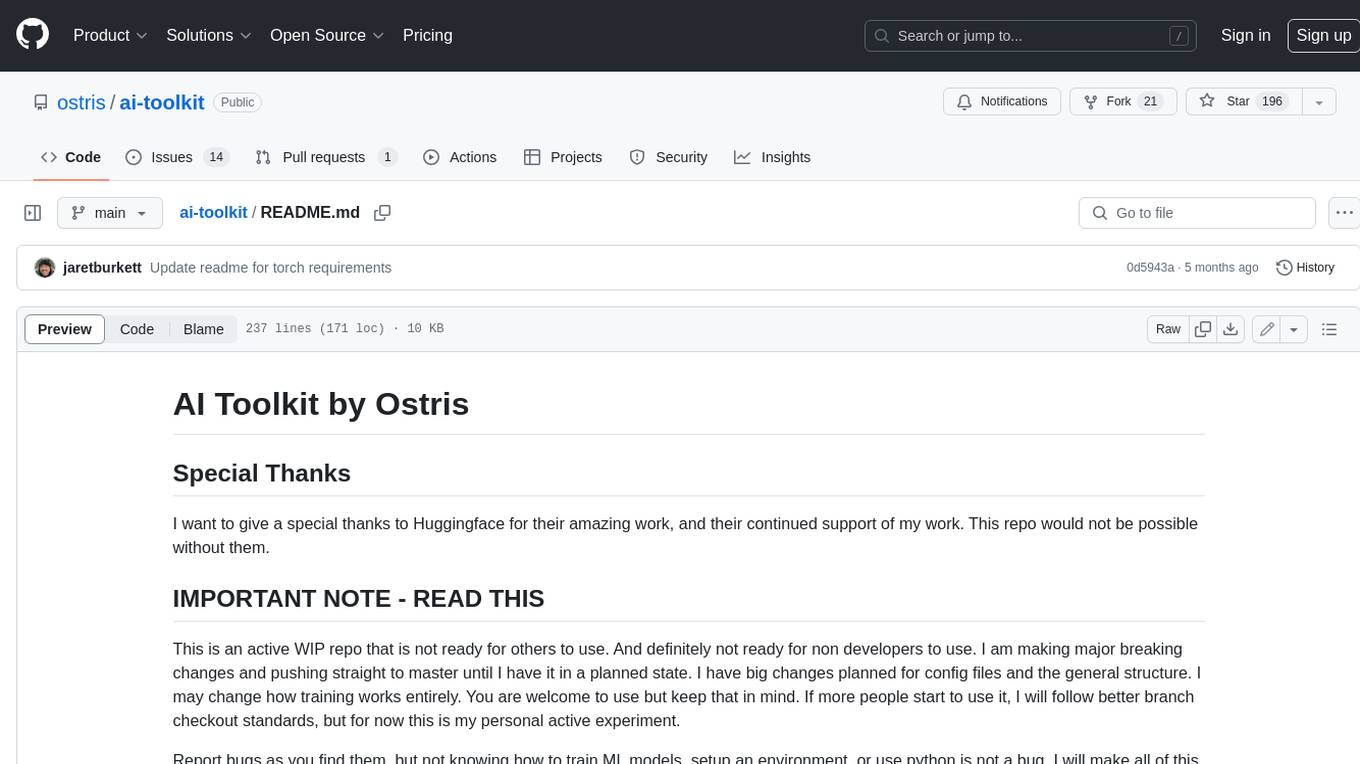
ai-toolkit
The AI Toolkit by Ostris is a collection of tools for machine learning, specifically designed for image generation, LoRA (latent representations of attributes) extraction and manipulation, and model training. It provides a user-friendly interface and extensive documentation to make it accessible to both developers and non-developers. The toolkit is actively under development, with new features and improvements being added regularly. Some of the key features of the AI Toolkit include: - Batch Image Generation: Allows users to generate a batch of images based on prompts or text files, using a configuration file to specify the desired settings. - LoRA (lierla), LoCON (LyCORIS) Extractor: Facilitates the extraction of LoRA and LoCON representations from pre-trained models, enabling users to modify and manipulate these representations for various purposes. - LoRA Rescale: Provides a tool to rescale LoRA weights, allowing users to adjust the influence of specific attributes in the generated images. - LoRA Slider Trainer: Enables the training of LoRA sliders, which can be used to control and adjust specific attributes in the generated images, offering a powerful tool for fine-tuning and customization. - Extensions: Supports the creation and sharing of custom extensions, allowing users to extend the functionality of the toolkit with their own tools and scripts. - VAE (Variational Auto Encoder) Trainer: Facilitates the training of VAEs for image generation, providing users with a tool to explore and improve the quality of generated images. The AI Toolkit is a valuable resource for anyone interested in exploring and utilizing machine learning for image generation and manipulation. Its user-friendly interface, extensive documentation, and active development make it an accessible and powerful tool for both beginners and experienced users.